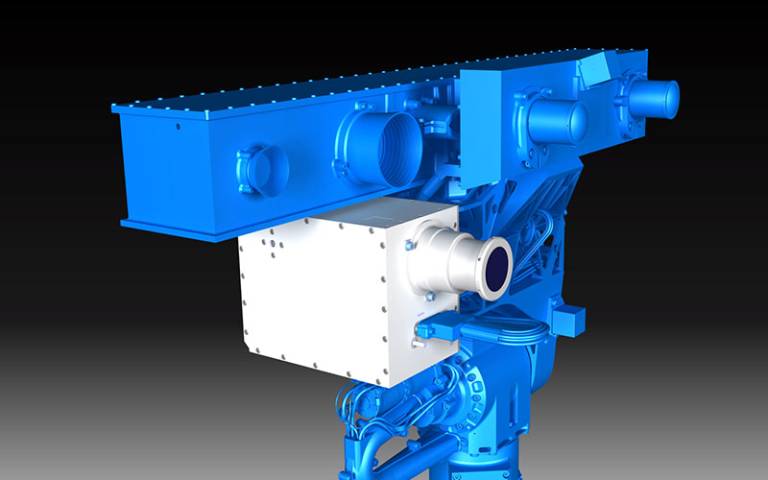UCL researchers will play a role in building a new instrument on the Rosalind Franklin Mars rover, replacing Russian-made components, so that the Mars mission can launch in 2028.

The project, funded with an additional £10.7 million from the UK Space Agency and led by Aberystwyth University, will involve the same team based at UCL's Mullard Space Science Laboratory who led on designing and building the rover's panoramic camera system.
The rover, which was built by Airbus in Stevenage as part of a European Space Agency programme, was due to launch in 2022 but the collaboration with Russia's space agency (Roscosmos) was cancelled following the illegal invasion of Ukraine.
The new instrument, named Enfys (meaning 'rainbow' in Welsh), will replace the Russian-built Infrared Spectrometer for ExoMars (ISEM), meaning the mission can recover its full scientific potential. Work will be led by Aberystwyth University with support from STFC RAL Space and Qioptiq Ltd as well as UCL.
Enfys will identify targets on the surface of Mars for sampling and analysis, building on the scientific discoveries of the Mars rover mission.
Enfys and the mission's UCL-led camera system PanCam will work together to identify minerals that could harbour evidence for life to enable the rover to drill for samples to be analysed by other instruments on the rover.
The £10.7 million brings the total UK Space Agency investment in the Rosalind Franklin rover to £377 million.
Professor Andrew Coates (Mullard Space Science Laboratory at UCL), Principal Investigator of PanCam on the Rosalind Franklin rover, said: "It is exciting to enhance the scientific power of PanCam's wide angle and high resolution visible cameras with improved mineral identification in the infrared thanks to Enfys. Our team are delighted to apply the experience from PanCam to Enfys, for the challenging environment of the Mars surface. We look forward to joint science and operations with Enfys."
Dr Matt Gunn from Aberystwyth University, Principal Investigator on Enfys, said: "This is a challenging and complex technical endeavour which has the potential to make a significant contribution to our search for signs of life on Mars. The instrument team, both here in Aberystwyth and in the partnering institutions, are all very much looking forward to receiving measurements from the planet's surface to expand our knowledge of the Mars environment.
"We learned a lot during the development and testing of PanCam and it is a privilege to be leading the fantastic team of people who will put that knowledge into practice once again to develop a new instrument for the mission."






